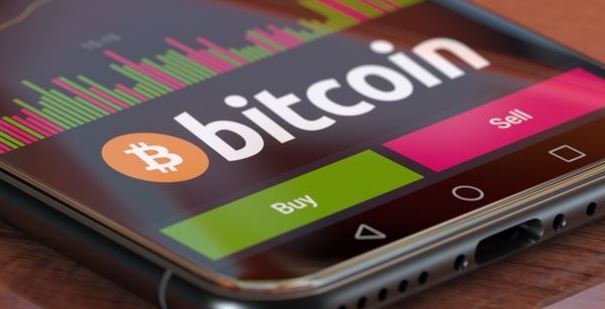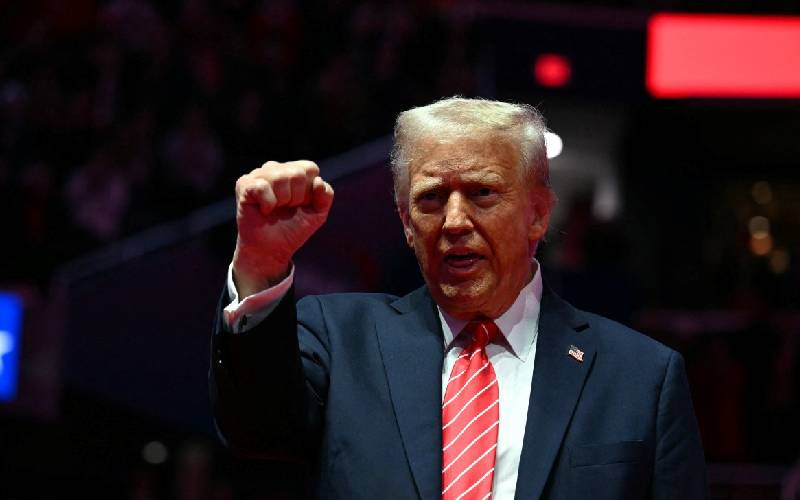A computer programmer who lost his Bitcoin password has just two guesses left before he is locked out of his account forever.
Stefan Thomas has lost the slip of paper with the information to unlock his 7,002 digital coins, which last week were worth a reported £180million (Sh26.9 billion).
The tech worker told the New York Times he cannot remember the crucial code to a small hard drive, known as an IronKey, to unlock his account and cash in.
German-born Mr Thomas, who now lives in San Francisco, said if he doesn't get the password right within the next two tries, he will lose the fortune forever.
He told the newspaper how he had been the Bitcoin in 2011 in exchange for making an animation.
The crypto-currency's value has soared wildly since then.
Mr Thomas' Bitcoin were this week worth around a reported £25,637.95 each.
The computer programmer said he had written down his password a decade ago - but now he cannot find it.
The IronKey only gives users ten tries at a password to access their digital wallet before it locks an account forever.
“I would just lay in bed and think about it,” Mr. Thomas told the NYT. “Then I would go to the computer with some new strategy, and it wouldn’t work, and I would be desperate again.”
He said he plans to put his IronKey in a secure facility until a better way is found to crack it.
Mr Thomas among many Bitcoin investors who have found themselves ready to cash in but locked out of their accounts.
Many who invested in the cryptocurrency a decade ago when a single coin was worth a matter of hundreds of pounds have found themselves sitting on a fortune.
And Bitcoin's soaring value has been on yet another an eight-month streak, despite the coronavirus pandemic ravaging the world economy.
The currency plummeted on Monday, along with traditional commodities like gold, due to political uncertainty in the wake of the riots at Capitol Hill.
Stay informed. Subscribe to our newsletter

But the crypocurrency hit a record high last week, prompting a fresh scramble to cash in.
Bitcoin has no central management investors can contact to ask for help.
The virtual currency was created by a mysterious figure using the name Satoshi Nakamoto, who wanted to create a form of currency that could be held in a digital wallet anywhere in the world, unregulated by governments or banks.
A limited number of Bitcoin are 'mined' by computers around the world, and transactions recorded on a digital ledger, called a blockchain.
Because anyone can create Bitcoin without having to go through any identity checks, the currency became popular with criminals and on the internet black market.
Expert services have since had to be launched to crack locked accounts as many would-be millionaires find they have lost the key to accessing their cryptocurrencies.
Wallet Recovery Services told the NYT it was fielding around 70 requests a day from people who were struggling to access their accounts.
Another Bitcoin investor, entrepreneur Brad Yasar, told the newspaper he still had several desktop computers containing thousands of Bitcoin he had 'mined' during the early days of the crytocurrency.
However he lost his passwords years ago, and has subsequently hidden the computer hard drives in vaccumm-sealed bag.
“Through the years I would say I have spent hundreds of hours trying to get back into these wallets,” Mr Yasar said.
While those Bitcoin are now worth hundreds of millions of dollars, he lost his passwords many years ago and has put the hard drives containing them in vacuum-sealed bags, out of sight.
Bitcoin, which was for years viewed as a renegade currency by traditional markets and banks, is now in mainstream demand.
However early investors trying to cash in their fortunes after its astronomic rise have struggled.
In 2013, a Welsh IT worker said he accidentally threw out a hard drive containing the keys to his 7,500 Bitcoin.
At that time James Howells' Bitcoin were worth around £4million.
Now, they would be worth more than £185m.
 The Standard Group Plc is a
multi-media organization with investments in media platforms spanning newspaper
print operations, television, radio broadcasting, digital and online services. The
Standard Group is recognized as a leading multi-media house in Kenya with a key
influence in matters of national and international interest.
The Standard Group Plc is a
multi-media organization with investments in media platforms spanning newspaper
print operations, television, radio broadcasting, digital and online services. The
Standard Group is recognized as a leading multi-media house in Kenya with a key
influence in matters of national and international interest.
 The Standard Group Plc is a
multi-media organization with investments in media platforms spanning newspaper
print operations, television, radio broadcasting, digital and online services. The
Standard Group is recognized as a leading multi-media house in Kenya with a key
influence in matters of national and international interest.
The Standard Group Plc is a
multi-media organization with investments in media platforms spanning newspaper
print operations, television, radio broadcasting, digital and online services. The
Standard Group is recognized as a leading multi-media house in Kenya with a key
influence in matters of national and international interest.






